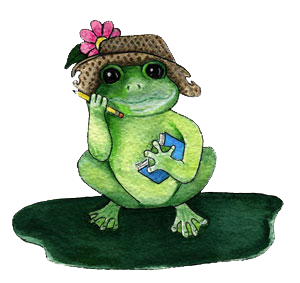Before there was a mouse in every house, we were fortunate enough to have small district libraries within walking range from home. We also had well-maintained and well supplied public schools within a system that was considered exceptional; the latter easily vied with the more expensive, private parochial schools that dotted the city limits. Age-appropriate discourse within a classroom was one of the benefits of a public education from K through 12.
Discussions held at school were appropriately contained by the teacher who retained full control of the classroom dynamics; and, who moderated young voices within the context of the lesson plans. While an astute instructor might easily identify some household attitudes and political ideology from the conversations, it didn’t matter because indoctrination was not the focus. Education came first in a community wherein civility was commonly defined and acceptable “good” behavior was practiced. Winners took all and losers were left in the dust because life was not fair and no one was promised otherwise; especially when families conversed around a table at least once a day and their belief systems echoed the teachers and mentors around us. Yep; there was nowhere to go and no way to grow but up and out on one’s own. Don’t let the door hit you in the backside.
Teachers would be needed in the seventies and eighties; and a good many of us heard the calling and desired to fill that need. We’d had the best, educational role models through the sixties; devoted and determined educators, the stars of the golden age of teaching (as my eighth grade art teacher would later describe those years; she and her peers often longed for those days). One of our science teachers didn’t assign homework; he listed the chapters for the week on the blackboard under the heading “Opportunities”. Go figure. And we did.
By the time we hit the high school campus, we’d brushed up our Shakespeare, walked with Colette through the woods and social injustices in Les Miserables, and traveled along America’s highways with Walt Whitman at the wheel. Other classics followed. We’d wait for Godot and vicariously experience The Iliad under Homer’s telling eye.
One particular English teacher had consistently encouraged us to question; to question all and every idea presented to us as Truth; to dig deep and wide, confirming its legitimacy for one’s own sake and future application. We managed this without discounting writers who on the surface offered no apparent commonality; to identify with the author was not a prerequisite. The purpose was to read; to expand one’s horizons. To seek out authors from all social, political, classical, and contemporary bents; to furrow into their minds’ gray matter and glean whatever truths they’d left behind on the printed page.
Some of us were fortunate enough to continue on to college. President Kennedy had asked us what we could do for our country; we who had heard his words and were young at heart immediately set out to comply! We believed. We dreamed. While saddened by his death, we didn’t stop believing nor did we abandon our willingness to serve. Johnson’s Great Society wasn’t going to accomplish all changes without individual commitment; and many of us idealists were truly committed to bettering our land.
We’d lived during the Civil Rights movement; not all of us had the same seat or view, but we still believed in the greater good of our fellow countrymen. We could turn this around, now that the discussions were verbalized and out in the open. We believed that’s what American civility was all about.
Unfortunately, many of my peers were only committed to widening the divide for political gain. Affirmative Action was thus far reaping a divisive, finger-pointing, pretentious segment of citizenry, seemingly deaf to the country’s growing pains. Everyone understood: racism existed. But we were not all bigots. “Racist” was a blanket moniker that was too easily tossed at those with differing views, particularly in light of the discourse that followed.
Once again, it is time to recheck, reread, and revisit some of the historical accounts that have been misrepresented or, worse yet, may be intentionally reinterpreted out of context by our current media.
Before there was a mouse in every house, some of us functioned by repeating old classroom habits. Some of us still do…
